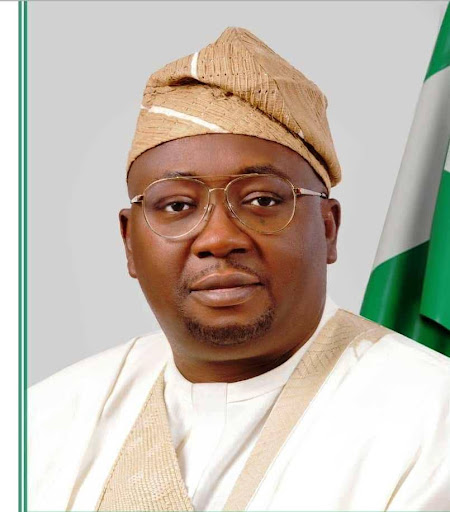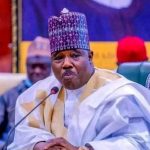Nigeria’ National Electricity Grid Installed Capacity rises from
13, 000 Megawatts
to 14,000 Megawatts
Ready to Pick Capacity
= 7,500 Megawatts
Average Load Utilisation
4,000 Megawatts
Peak Load Evacuation/
Peak Load Utilisation
5,801 Megawatts
all these landmarks of laudable achievements were recorded between
Q4 2023 – Q2 2025 ..
Nigeria’s Minister of Power, Chief Adebayo Adelabu, has disclosed that the country has improved on its installed electricity generation capacity, which has risen from 13,000MW to 14,000MW, alongside a record peak generation of 5,801MW and zero national grid collapses so far in 2025.
Adelabu, however, warned that the sector’s progress risks reversal if urgent action is not taken to address a crippling ₦4 trillion debt owed to power generation companies (GENCOs), a legacy burden dating back to 2015.
He described the debt overhang as the biggest threat to the sector’s viability.
The minister added that without immediate liquidity support, power plants may be forced to shut down, thereby crippling the economy and reversing the gains made under the current administration.
Adelabu appealed for partial payment to GENCOs while ongoing audits verify outstanding claims.
He disclosed that over 300,000 smart meters have been delivered to electricity consumers under the ₦700 billion Presidential Metering Initiative, emphasizing that an additional 3.45 million units are currently in the procurement pipeline.
A statement from the Federal Ministry of Power on Monday quoted Adelabu speaking during a high-level meeting between President Bola Ahmed Tinubu and the Association of Power Generation Companies (APGC) at the Presidential Villa.
According to him, the smart metering programme is one of several milestones achieved by the administration since May 2023. Adelabu listed others to include the enactment of the Electricity Act 2023, which liberalized the power market and empowers sub national governments to participate in electricity generation, transmission, and distribution.
He said the initiative, launched as part of President Tinubu’s reforms to revitalise the sector, is aimed at closing Nigeria’s metering gap, improving billing accuracy, and reducing consumer disputes, while also boosting investor confidence.
The minister also stated that the FG launched the first Integrated National Electricity Policy in 24 years, which has attracted over $2 billion in new capital for grid expansion and off-grid electrification, and grew annual sector revenue from ₦1 trillion in 2023 to ₦1.7 trillion in 2024.
The increase, Adelabu noted, had slashed government subsidy obligations by ₦700 billion.
He affirmed the Tinubu administration’s commitment to transparency, noting that only validated debts would be honoured under the proposed ₦4 trillion bond programme, which has received anticipatory presidential approval. Adelabu also backed calls by industry leaders Tony Elumelu and Kola Adesina for urgent action to resolve gas supply constraints, especially in the Afam axis, where unpaid gas suppliers have stifled generation.
He proposed leveraging 800 million standard cubic feet of gas from the Nigeria LNG (NLNG) to stabilise the sector in the short term.
He reaffirmed that electricity remains central to Nigeria’s economic transformation agenda and urged stakeholders to exercise patience and work collaboratively to secure lasting reforms












